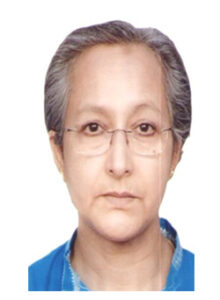delhi@srijanindia.org
+91 8800515992
Login
Contact Us


Dr. Rajeswari S. Raina
Dr. Rajeswari S. Raina is Professor with the Department of International Relations and Governance Studies, Shiv Nadar University (Institution of Eminence), Delhi NCR. Her research goal is to understand and explain the interface between knowledge, ways of knowing and options for action to ensure environmental sustainability and social wellbeing. Science, technology, society (STS) relationships, the politics of knowledge and innovation, and the substantive relationships that underpin agriculture, human and ecological well-being are central to her research. This entails research, teaching, and advisory roles within academic, governmental and civil society organizations and networks. She is an active member of domestic and international networks researching and building capacities in rainfed agriculture, rural and agrarian studies, the politics of post-growth, agroecological transitions, agro-biodiversity, rural innovation and livelihoods, the recent NCNF (National Coalition for Natural Farming), climate variability and adaptation, energy transitions in dairy/meat sectors, and capacities for sustainable and resilient commons. Her current work and publications are on institutions and institutional change (post-growth agriculture, biodiversity and living soils), policy processes and policy intelligence, inclusive innovation, decentralized agroecological systems, revisiting international environmental assessments, sustainability and knowledge based bio-economic capabilities. They draw from and reinforce post-growth opportunities and environmental justice options, on-going sub-national and transnational agrifood experiments, policies and international assessments of agrifood systems.
Partnerships mark all these endeavours; with civil society organizations, environmental/social activists, academics, donors and positive deviants among domestic and international policy makers. Her work reveals that the plural meanings and materiality of agriculture are not alternatives to a given mainstream; they are substantive complex systems that are still holding out against the “new fundamentals” of growth and structural transformation, promoted as part of an international policy harmonization since the mid-20th century.

